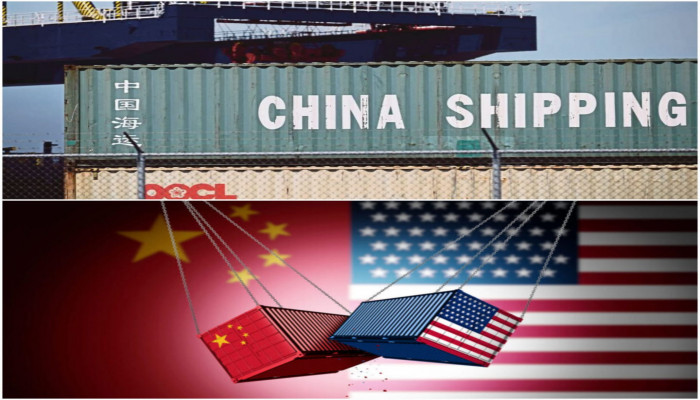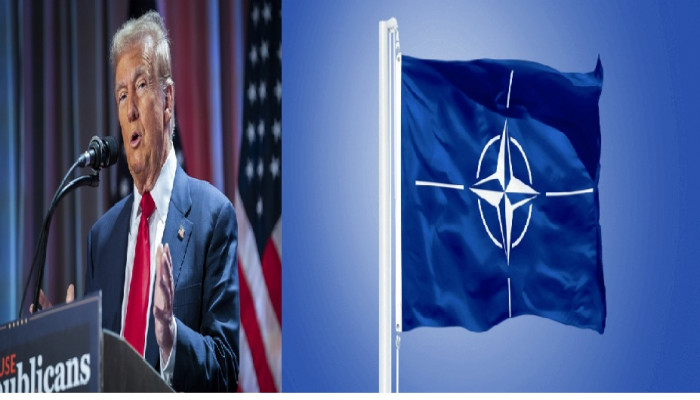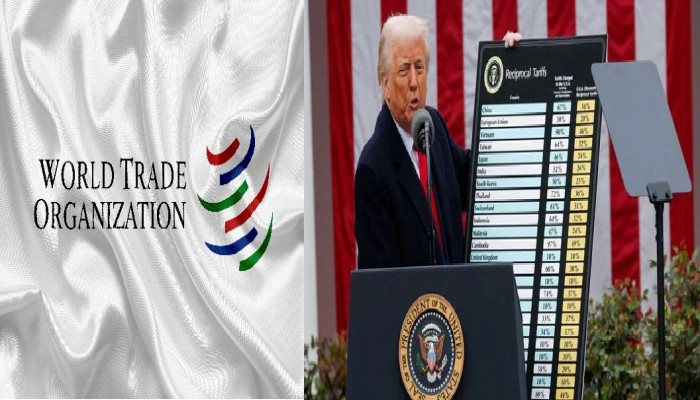U.S. imposes new port fees on Chinese ships to boost domestic shipbuilding, curb China’s dominance
- In Reports
- 05:25 PM, Apr 19, 2025
- Myind Staff
On Thursday, the United States announced new port fees targeting ships built and operated by China, aiming to support its shipbuilding industry and reduce China's stronghold in the sector. This decision, which follows an investigation started under the previous administration, comes amid an ongoing trade war between the U.S. and China sparked by President Donald Trump's tariffs, and could further escalate tensions between the two countries.
In a statement announcing the new fees, most of which will take effect in mid-October, US Trade Representative Jamieson Greer emphasised the importance of maritime activity: "Ships and shipping are vital to American economic security and the free flow of commerce."
Under the new regulation, Chinese-linked ships will be charged fees based on their tonnage or the number of containers for each voyage to the U.S., rather than being charged at every port stop, which had been a concern in the industry. These fees will be applied no more than five times a year, and shipowners can avoid the charges if they order a vessel built in the United States.
Once a global leader after World War II, the U.S. shipbuilding industry has significantly declined and now makes up only 0.1% of global production. Today, the industry is primarily led by Asian countries, with China producing nearly half of all new ships, followed by South Korea and Japan. Together, these three countries account for over 95% of global civilian shipbuilding, according to the UN. Different fees will apply to ships operated by Chinese companies or built in China, and these charges will increase over time.
For ships built in China, the initial fee is $18 per net ton or $120 per container, which means a vessel carrying 15,000 containers could face a hefty cost of up to $1.8 million.
In March, U.S. groups from around thirty industries raised concerns about how the proposed fees might impact the cost of imported goods.
One company that participated in the survey said it feared the new fees, combined with existing tariffs on China and other nations and duties on steel and aluminium, would create "extraordinary pressure on US retailers." In addition, a fee will be applied to all car carrier ships not built in the U.S., starting in 180 days.
Washington also plans to implement new fees for liquified natural gas (LNG) carriers, but these will only come into effect after three years.
According to a fact sheet released with the announcement, the fees won’t apply to "Great Lakes or Caribbean shipping, shipping to and from US territories, or bulk commodity exports on ships that arrive in the United States empty." Alongside the fees, Greer also revealed proposed tariffs targeting certain ship-to-shore cranes and Chinese cargo handling equipment.
"The Trump administration's actions will begin to reverse Chinese dominance, address threats to the US supply chain, and send a demand signal for US-built ships," Greer expressed.



























Comments